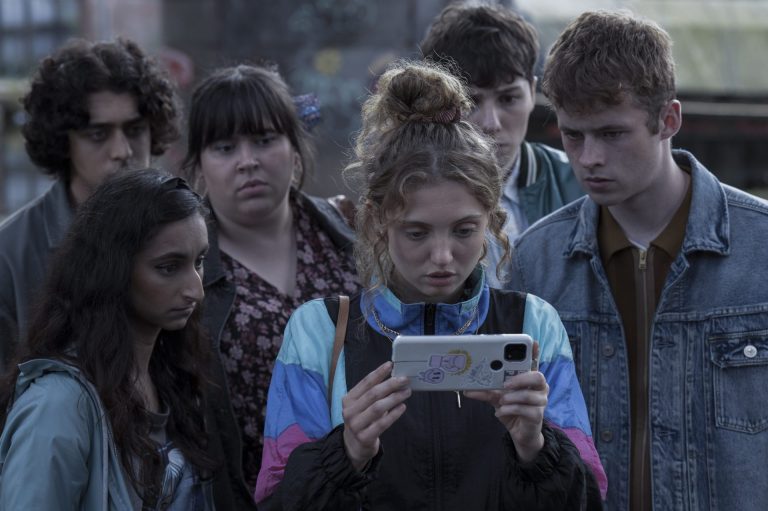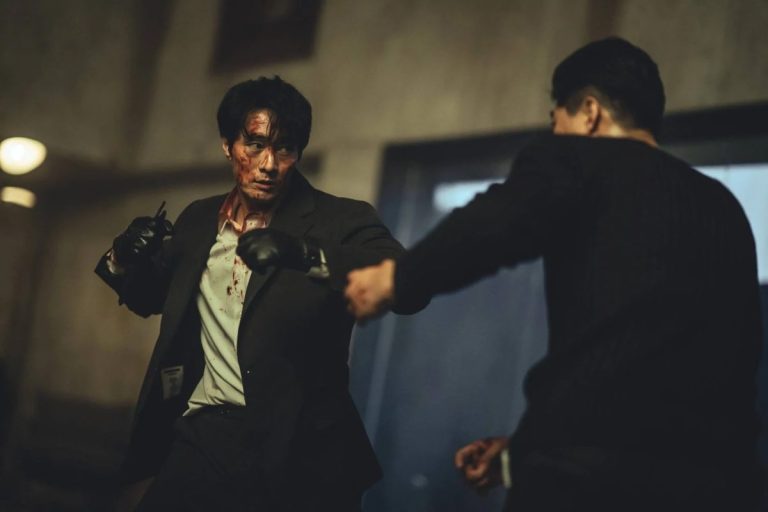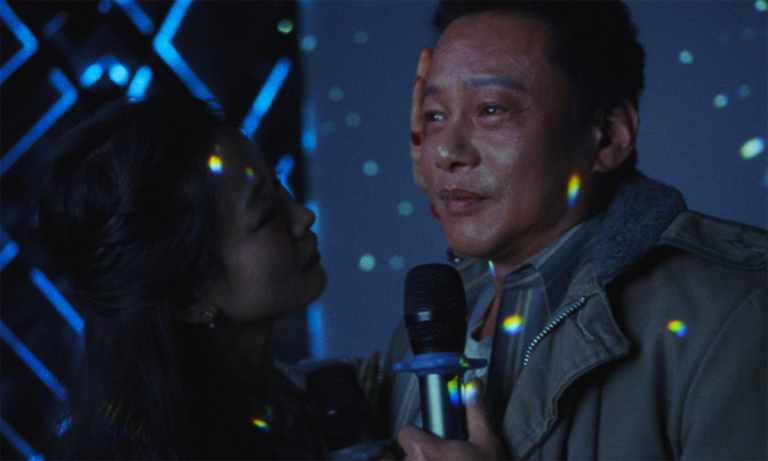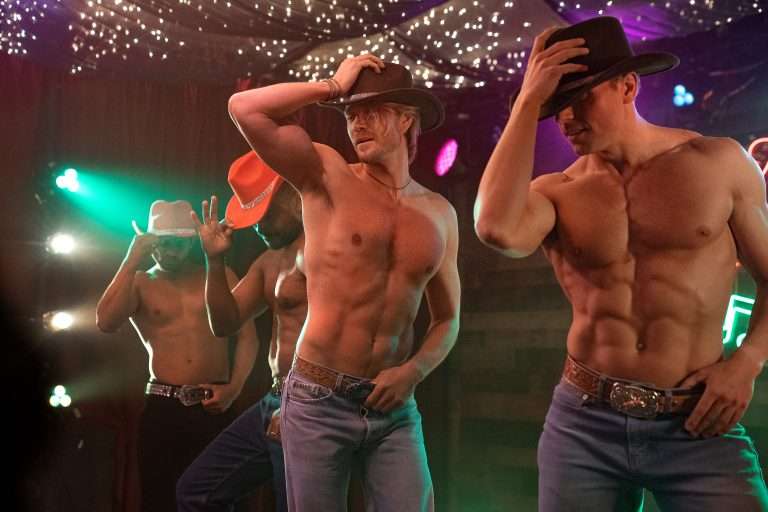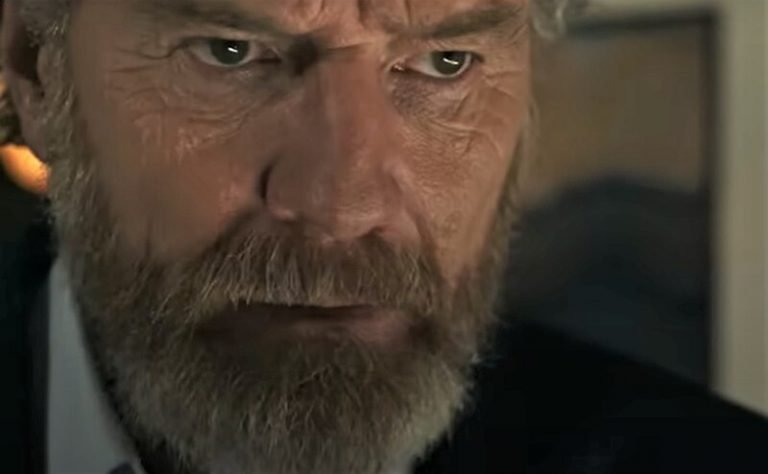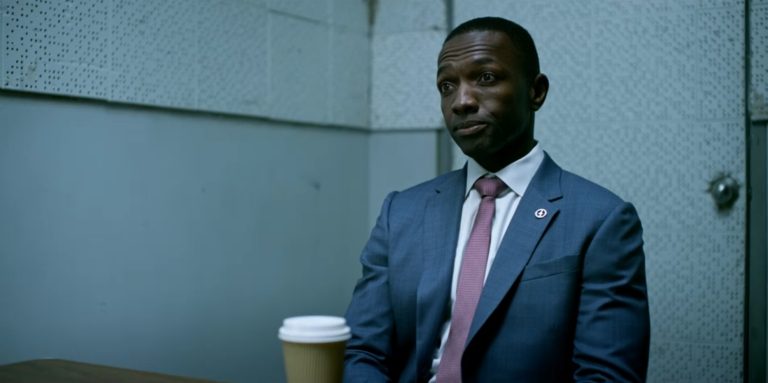The path from an original idea to its remakes is fascinating academically if only to identify which aspect of the source material would be deemed attractive enough for an adaptation or a remake. This idea, however, forgoes the scene-by-scene remake that, at its most, could be considered lazy.
“Gyaarah Gyaarah,” the Zee5 original web series directed by Umesh Bisht (Pagglait) and produced by Sikhya Entertainment (led by Guneet Monga) and Dharmatic (the web-series arm of Dharma Productions led by Karan Johar), is an official remake of the widely popular South Korean drama “Signal” (written by Kim Eun-Hee and directed by Kim Won-Seok). However, the template that “Signal” itself is inspired by—two police officers connecting as a result of a freak weather pattern and an old-timey transmitter or a walkie-talkie—is inspired by the Gregory Holbit-directed and Toby Emmerich-written film released in the year 2000, titled “Frequency.”
“Frequency” also had a “high concept,” but its melodramatic American roots were tightly in place, with the relationship between father and son reverberating across the past and present as the son interacts with his father via the old walkie-talkie. Yet, as time is changed, time itself reacts against the change. The “butterfly effect” remains unproven as a theory or the concept of traveling back and forth in time; the narrative possibilities opening up as a result of such a theory remain limitless, depending on the creativity of the writer and director. From that end, the concept of “Frequency” would also be utilized, albeit slightly tweaked, in Oriol Paulo’s 2018 twisty-turvy crime-thriller cum relationship drama “Mirage” and its 2021 Indian remake directed by Anurag Kashyap, titled “Dobaara.”
Full disclosure: I haven’t seen “Signal.” However, after having seen “Gyaarah Gyaarah,” I can assume the primary change that “Signal” makes to the plot skeleton of “Frequency” is to remove the direct familial relationship between the characters interacting in the past and present. Rather, it enhances the relationship by focusing on their professional duties, with both characters working as police officers, and how the meddling with time affects the outcome of unsolved cases across the past and present. This twisting of the time travel formula, as well as establishing the rules of interaction across time, remains mostly intact, except for its initiation, which hasn’t been established yet by the end of “Gyaarah Gyaarah” season 1.
That is because the show presumably adapts half of the full season of “Signal.” It is an interesting choice, both for the stewards of “Signal” and “Gyaarah Gyaarah,” to not entirely focus on the “why” of the MacGuffin—why does the old-time radio transmitter turn up only during events of pivotal cases co-incidentally occurring in both timelines? It instead focuses on investigator Yug Arya (Raghav Juyal), a sincere and intelligent police officer whose personal connection to a murder case that had occurred many years ago had shaped him into the rebellious, impulsive, and yet tenacious cop that Juyal portrays in the current timeline.
The introduction of a law that would destroy the statute of limitations for cold cases and render them inadmissible to be investigated becomes a ticking time bomb in the first three episodes for Yug to investigate that murder and find the killer he is convinced is innocent. But in that process, the time communication via an old radio transmitter allows him to interact with the chief investigative officer of that case during the 1990s, Shaurya Antwal (Dhairya Karwa), a giant of a man in physicality but disguising a heart of gold and vulnerability. The initial interaction leads to a domino effect that not only reopens the case but also results in the formation of a “Cold Case Department,” led by Yug’s superior officer, Vamika Rawat (Krittika Kamra).
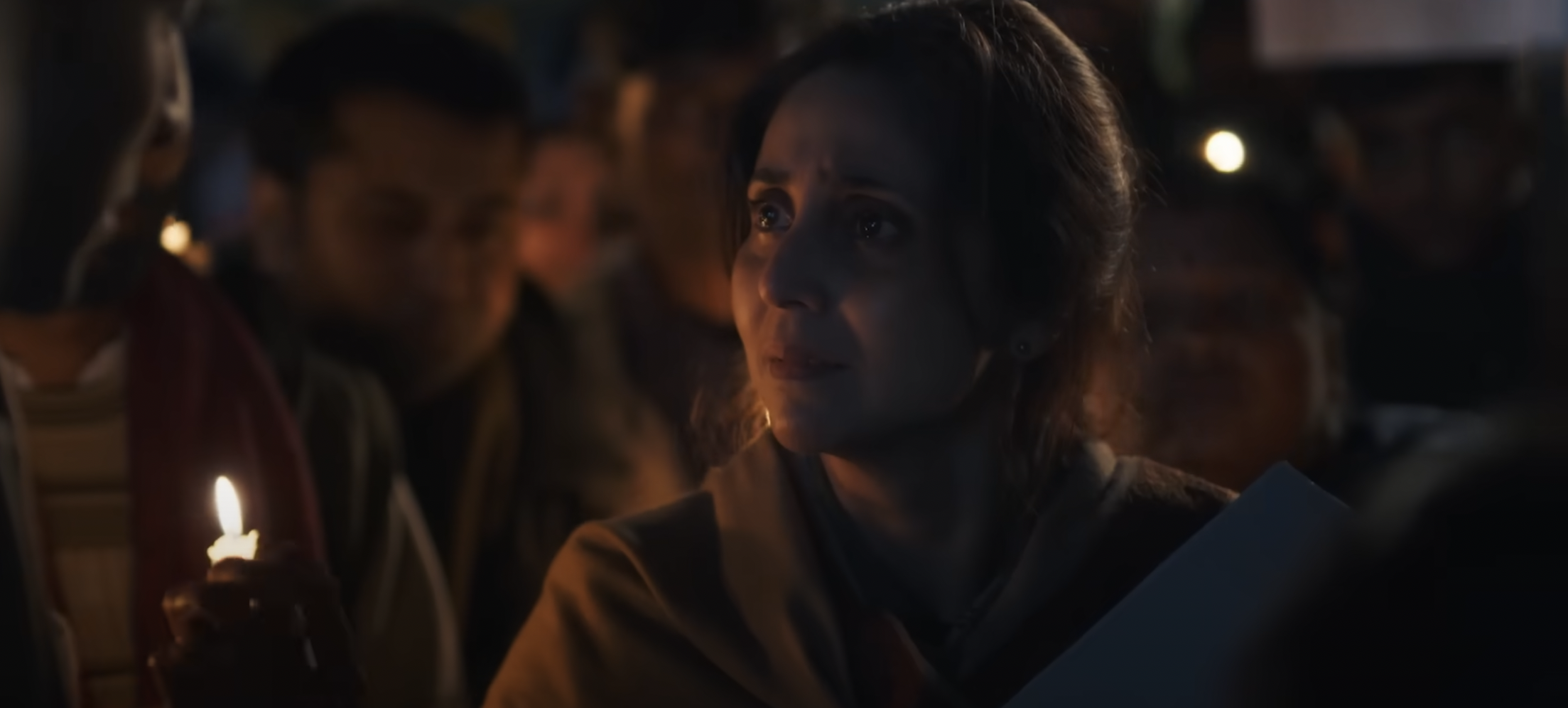
One caveat that everyone, including me, will have to take into account is that this show is very much a web series with the tonality of a commercial thriller. Sure, there are moments of violence that wouldn’t fly in a commercial movie, but the moments of catharsis or conflicts are very suitably over-the-top. This either provides elation or annoyance. Umesh Bisht is familiar with interpersonal dynamics between family members or colleagues in a high-pressure environment; thus, those are the moments where Bisht prefers giving precedence.
That isn’t to say he is not adept at displaying the procedural nature of all the cases. Credit goes to “Gyaarah Gyaarah,” even with its silly name notwithstanding, for crafting individual cases in this show rather engagingly. The initial contrivance of all cold cases, rendering them unable to be investigated, feels like a plot contrivance taken verbatim from the original show and retroactively fitting into an Indian context forcefully. But I do acknowledge that one of the fallouts of the force-fitting is showcasing the corruption prevalent within the higher-ups of the administration and how that becomes an even bigger hurdle to cross even with an ability like time-travel in the hands of Yug or Antwal.
But again, that, too, comes with caveats. While Gaurav K. Sharma is a reliable supporting actor, having worked on multiple films and television projects for at least a decade now, his role as Harendra Juyal calls for a character being a sly politician with pressures from his superior and the media, as well as the officers under him, forcing him to take scrupulous lanes. But the character isn’t given enough space for a nuanced depiction. Instead, he is shown as a brusque individual with a penchant for cussing out his subordinates.
Harsh Chhaya, playing IG Sameer Bhatiya, feels like he has walked off the set of “Undekhi,” unable to exorcise the specter of Pappaji from his soul. The septuagenarian crime lord of the Atwal family in “Undekhi” has changed clothes and taken on the role of an IG here. One notes the similarity in cadence and most of his dialogues being laced with cussing. And while I am not of a faint constitution, this does seem like one of those shows where the overuse of cussing feels very much out of place, force-fitted to give the show an unnecessary extra edge.
Of course, there are plot contrivances, like the transmission between Yug and Atwal only beginning every night at 11:11 p.m. and lasting for a minute, or Yug and Atwal only managing to impart a minor piece of information. That leads to the plot of that investigation being upended entirely, affecting the future as well. It is a familiar and obvious method of pulling plot strings like taffy. I am convinced this same methodology has been utilized in the original show as well. But I would be lying if I said I wasn’t engaged, but yes, there are some contrivances, like Yug always attacking his superiors, as well as Atwal, that would cause you to roll your eyes.
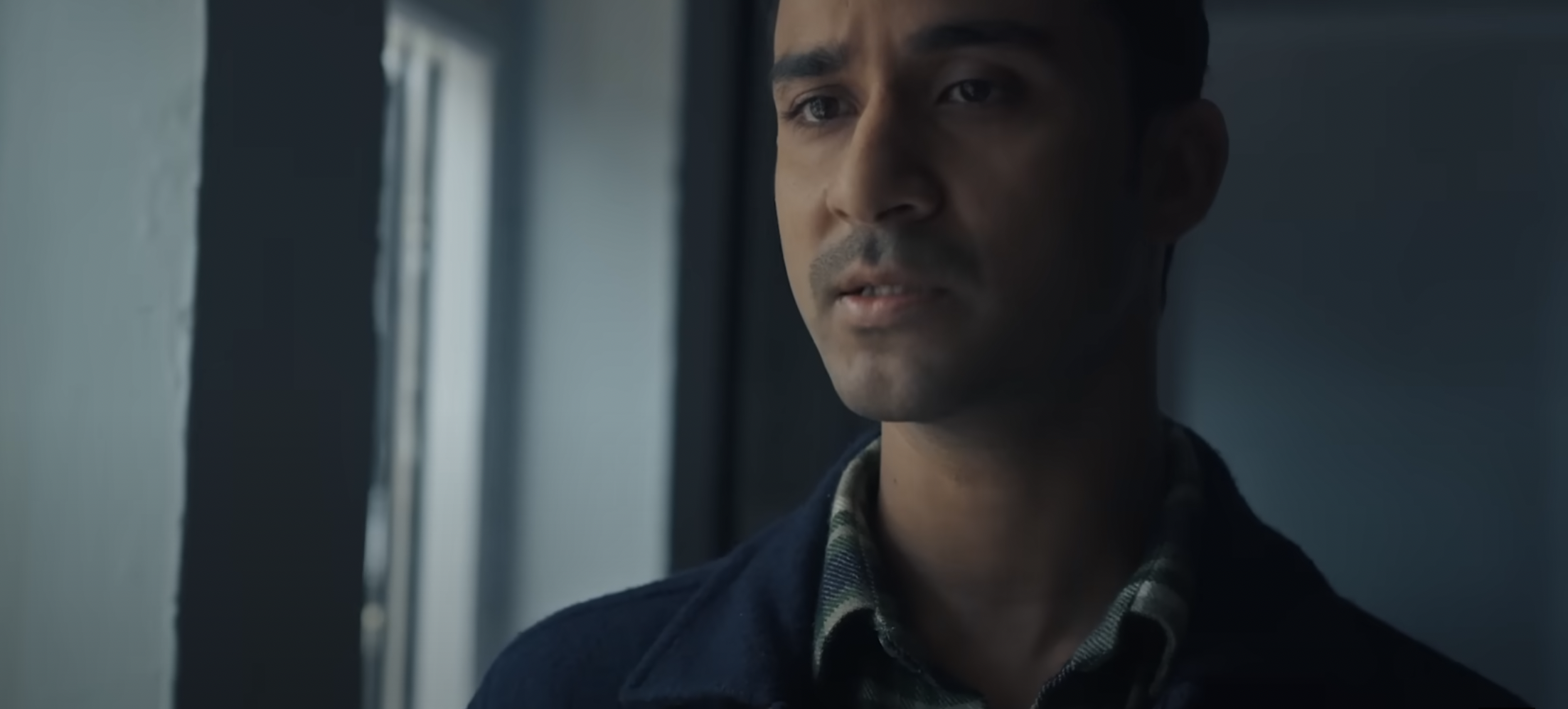
These are parts of the translation that have been transplanted, seemingly unchanged. As for translation from South Korean to an Indian context, the easier option for most of these web series is to transplant the plots into a hill station for automatic built-in atmospherics and intrigue stemming from the milieu’s natural beauty. “Gyaarah Gyaarah” is no exception, but shifting the setting to Mussorie does help in enhancing the suspense of some of the cases, especially the case being investigated from episodes 4–5, which has a fallout of a personal nature in the case of Atwal. That case is also remarkable for having the potential to end ambiguously but ultimately choosing the route entailing the most crowd-pleasing.
Here’s the rub: some acting choices feel archetypal, like Kamra’s depiction of Kamat as the tough superior officer or the overbearing mother always over Kamat’s shoulder, urging her to marry. These elements again belong part and parcel of the “commercial elements,” which do threaten to disconnect you if the show isn’t paced well enough. Thankfully, the show is edited well enough that it is easy to discern the elements of both the past and present timelines, especially during the climactic moments of each case. The performances overall are convincing.
While Juyal is good at depicting Yug’s sincerity, his brash moments feel slightly out of place. Dhairya Karwa, though, as Atwal, is terrific in his role, especially in subtly differentiating his older counterpart and the wide-eyed nature when he plays his character as a rookie, slowly turning cynical as tragedy and failure strike him. The cinematography by Kuldeep Mamaniya deserves praise, especially in the night-time sequences. The music by Tallz does overscore, overwhelming moments of heightened emotionality. The inclusion of songs in a web series always feels dissociated from the original conception of a web series template.
The winner of shows like these is always the screenplay, and even if the plot skeleton doesn’t stray far at all from the original show, it is adapted well enough that it can stand on its own. At the very least, I respect the show enough that even if I watch the original after this, I am still awaiting the release of a second season to understand how this iteration of the story will end.




